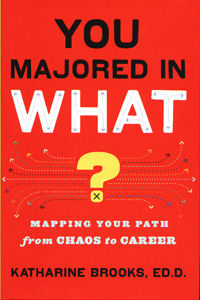21 January 2010 archive
Making College ‘Relevant’ 0
Making College Relevant
By KATE ZERNIKE
 Thomas College, a liberal arts school in Maine, advertises itself as Home of the Guaranteed Job! Students who can’t find work in their fields within six months of graduation can come back to take classes free, or have the college pay their student loans for a year.
Thomas College, a liberal arts school in Maine, advertises itself as Home of the Guaranteed Job! Students who can’t find work in their fields within six months of graduation can come back to take classes free, or have the college pay their student loans for a year.
The University of Louisiana, Lafayette, is eliminating its philosophy major, while Michigan State University is doing away with American studies and classics, after years of declining enrollments in those majors.
And in a class called The English Major in the Workplace, at the University of Texas, Austin, students read Death of a Salesman but also learn to network, write a resume and come off well in an interview.
Even before they arrive on campus, students and their parents are increasingly focused on what comes after college. What is the return on investment, especially as the cost of that investment keeps rising? How will that major translate into a job?
The pressure on institutions to answer those questions is prompting changes from the admissions office to the career center. But even as they rush to prove their relevance, colleges and universities worry that students are specializing too early, that they are so focused on picking the perfect major that they do not allow time for self-discovery, much less late blooming.
 The phrase drives me crazy. What are you going to do with your degree? but I see increasing concerns about that, says Katharine Brooks, director of the liberal arts career center at the University of Texas, Austin, and author of You Majored in What? Mapping Your Path from Chaos to Career. Particularly as money gets tighter, people are going to demand more accountability from majors and departments.
The phrase drives me crazy. What are you going to do with your degree? but I see increasing concerns about that, says Katharine Brooks, director of the liberal arts career center at the University of Texas, Austin, and author of You Majored in What? Mapping Your Path from Chaos to Career. Particularly as money gets tighter, people are going to demand more accountability from majors and departments.
Consider the change captured in the annual survey by the University of California, Los Angeles, of more than 400,000 incoming freshmen. In 1971, 37 percent responded that it was essential or very important to be very well-off financially, while 73 percent said the same about developing a meaningful philosophy of life. In 2009, the values were nearly reversed: 78 percent identified wealth as a goal, while 48 percent were after a meaningful philosophy.
The shift in attitudes is reflected in a shifting curriculum. Nationally, business has been the most popular major for the last 15 years. Campuses also report a boom in public health fields, and many institutions are building up environmental science and just about anything prefixed with bio. Reflecting the new economic and global realities, they are adding or expanding majors in Chinese and Arabic. The University of Michigan has seen a 38 percent increase in students enrolling in Asian language courses since 2002, while French has dropped by 5 percent.
Thinking About the Ivy League? 0
Â
Here is the reason why one particularly talented student chose Yale. WARNING! If you do not have a sense of humor or appreciate “out of the box” creative thinking by college students,  avoid watching this video.Â
